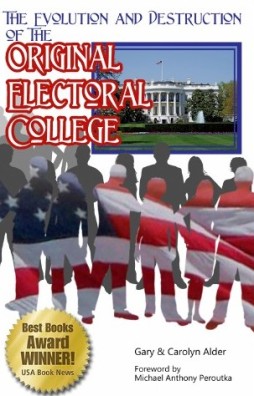The first 10 amendments, The Bill of (individual) Rights, do not amend the original intent of the Constitution. They clarify the restraints placed on the national government and they safeguard the rights of individuals.
Key 13 Analysis
The Founders believed that people have unalienable, God given rights. The proper role of government is to secure or protect individual rights. We generally think of the right to life, liberty, ownership of personal property; the right to speech, worship God according to conscience, freedom to print newspapers, books, etc.; freedom to pursue personal talents and interests; the right to self defense and self government, etc. A right can be described as a just claim. Rights serve as checks against government usurpations. A promise of a declaration of individual rights, as part of the Constitution, was a condition of ratification by several of the States.
Thanks is due largely to George Mason, Elbridge Gerry, and a few others who would not add their signature to the Constitution because it did not contain a “Bill of Rights.” George Mason is known as “The Father of the Bill of Rights.” Others expressed similar concerns. When Thomas Jefferson read the Constitution for the first time in France, he was happy with many things, but was concerned that there was no bill of rights. This issue was a favorite of the anti-federalists.
James Madison originally believed that a “Bill of Rights” was not necessary in the Constitution because only limited and carefully defined powers were granted to the separate branches of the national government.
Alexander Hamilton believed that it would even be dangerous to include a “Bill of Rights” because once you start listing your rights some will inevitably be forgotten, and if not listed could then be denied on that basis.
Even though James Madison said in the Constitutional Convention that a Bill of Rights was not necessary, he was the one that unrelentingly pushed for it in the House of Representatives in the first Congress under the new Constitution. Because much of the debate over ratification by the anti-federalists had to do with the lack of a “Bill of Rights,” James Madison felt that it was important to please those people as well, and make sure that the unalienable rights of the people are protected.
Many suggestions for the list of rights came in with the ratifications. Dr. W. Cleon Skousen says that there were 189 suggested amendments. James Madison reduced those into 17 which went to the Senate. The Senate further reduced those to 12 which after passing the House went out to the states for ratification. Numbers 1 and 2 were not ratified, but 3 through 12 were ratified. These became the first 10 amendments to the Constitution or the Bill of Rights.
These first 10 Amendments did not change anything in the Constitution. Adding these amendments clarified the limits of the national government, in particular Congress; that Congress could not make any laws that would infringe or abridge individual rights. Specifying these as amendments would reinforce the people’s demand to maintain their rights.
Quotes
If the sense in which the Constitution was accepted and ratified by the Nation…be not the guide in expounding it, there can be no security for a faithful exercise of its powers. James Madison
* * *
On every question of construction, carry yourselves back to the time when the Constitution was adopted, recollect the spirit manifested in the debates, and instead of trying what meaning may be squeezed out of the text, or invented against it, conform to the probable one in which it was passed. Thomas Jefferson June 12, 1823 letter to Justice William Johnson
* * *
And that the said Constitution be never construed to authorize Congress to infringe the just liberty of the press, or the rights of conscience; or to prevent the people of the United States, who are peaceable citizens, from keeping their own arms; or to raise standing armies, unless necessary for the defense of the United States, or of some one or more of them; or to prevent the people from petitioning, in a peaceable and orderly manner, the federal legislature, for a redress of grievances; or to subject the people to unreasonable searches and seizures of their persons, papers or possessions. Samuel Adams
* * *
Potentially, a government is the most dangerous threat to man’s rights: it holds a legal monopoly on the use of physical force against legally disarmed victims. When unlimited and unrestricted by individual rights, a government is man’s deadliest enemy. It is not as protection against private actions, but against governmental actions that the Bill of Rights was written. Ayn Rand Capitalism: the Unknown Ideal p. 326
* * *


